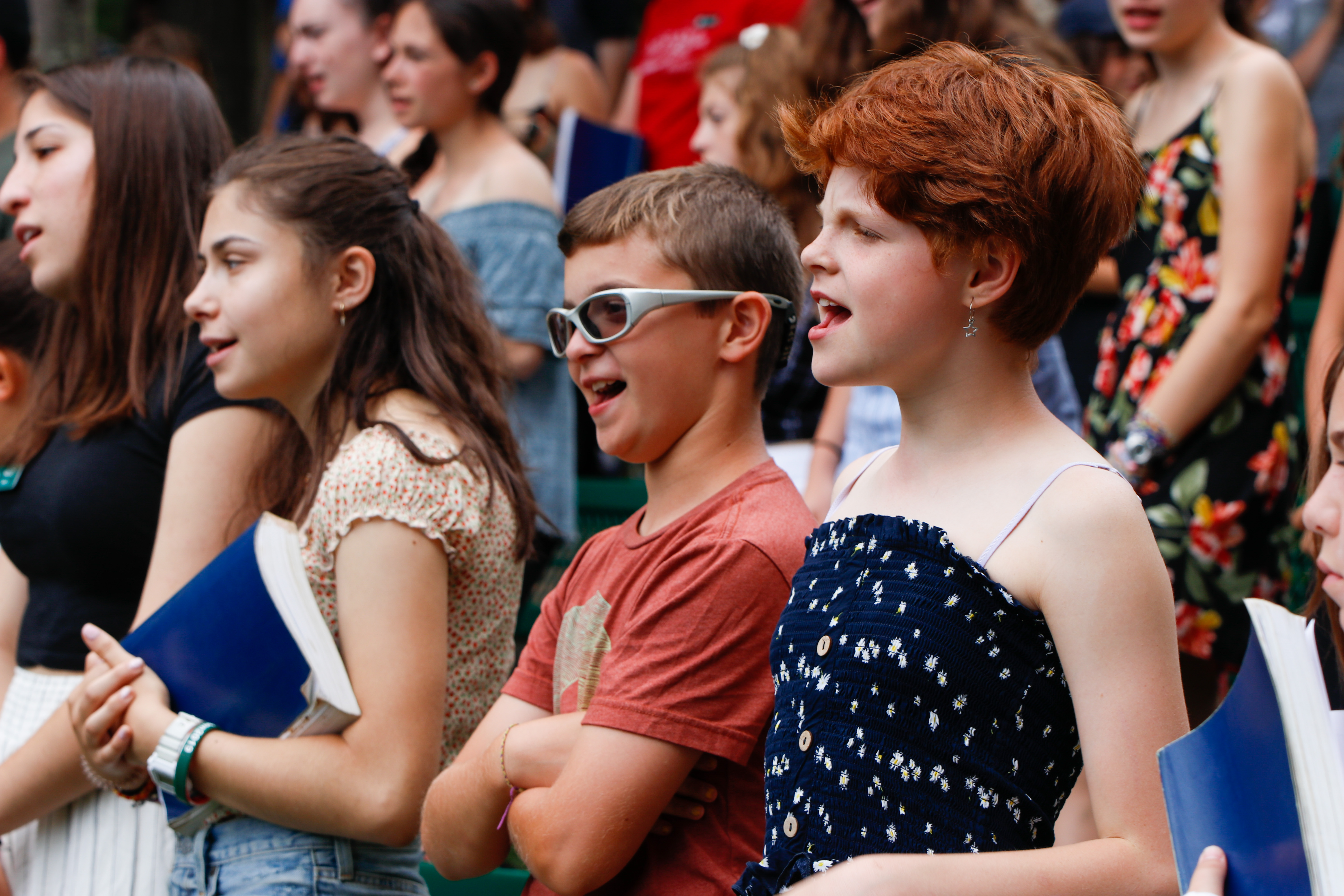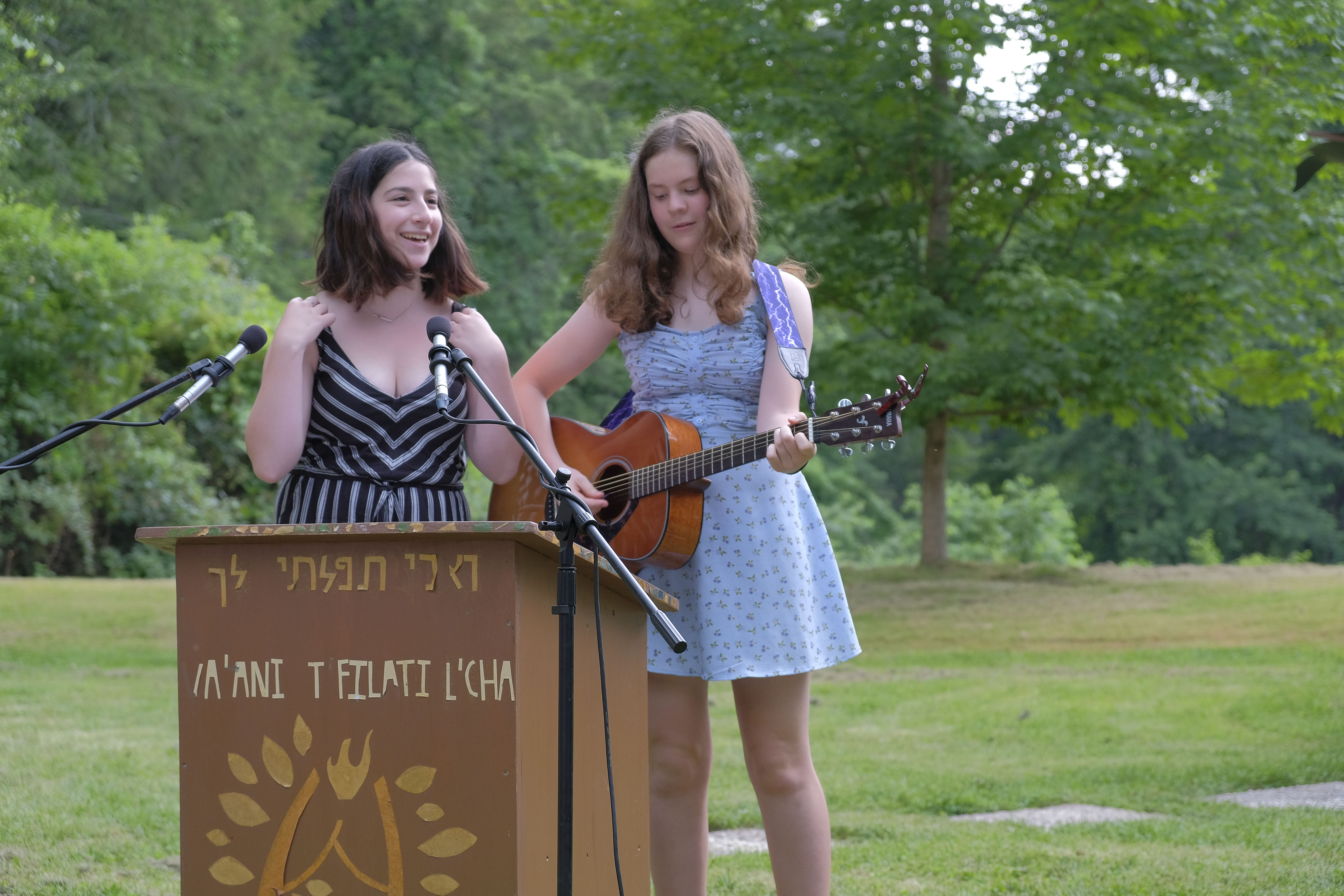This week, we’ve had the joy of singing with guest musician Alan Goodis. At camp we sing songs that are silly, and we also sing songs that put the words and ideas of our most central prayers to fun and beautiful music. Sometimes we sing songs that embody Jewish values and texts. Reform Jewish camping has long been a center of contemporary Jewish music. This week we will take a look at some of the educational reasons why we sing together.
Jonny Berliner (TEDx, 2018), a science educator who uses music to teach science, explains how educational songs can do five important things:
- Engage audiences and relate to the listener’s emotions

- Familiarize complicated language
- Convey meaningful understanding by repeating the main message in straightforward terms
- Enhance memory and recall
- Bridge the gap between arts and sciences
Jewish learning is similar to science in that it may be inaccessible at first, require complicated language, and may contain knowledge that ideally would be carried with the learner and applied as relevant situations arise through life experience. Singing Jewish concepts may be effective for many of the same reasons Berliner suggests. As an educator, Berliner often has students write their own songs to help crystalize understanding, a technique we use at camp as well.
Finally, when we sing together we understand that together we are greater than we are alone. We experience connection and the uplift of community. Isn’t that what camp and Judaism are all about?
Every Shabbat, our campers lead t’fillot for the entire camp community. This week, Bonim lead our Friday evening service and Tzofim lead Shabbat morning with 5 Torah readers! Here are this week’s featured camper readings from the t’fillot:
“We hope you learned that you can play a lot of different roles in your life. Sometimes in life we are like Moses and are being told what to do. Sometimes we get frustrated and ignore directions. Sometimes in life we are like God, trying to tell everyone else what to do. Sometimes we are the rock and are being expected to do something great. Sometimes we are like the staff and are doing things that are out of our control. We hope you enjoyed our service. Shabbat Shalom!”
– Darin, Walker, Ben, & Alex (Bonim)
“Here at Eisner we are lucky to experience acceptance naturally. But outside of the Bubble, acceptance of differences is not always the case. Racism, anti-Semitism, an anti-LGBTQ are merely a few examples of issues which plauge our reality. Falling into society’s usual disease is easy, but of course what is easy is not always right. The more fulfilling path comes from understanding and internalizing other perspectives, and learning to accept people even if they are different than yourself. At Eisner, we learn to not only accept differences but also to appreciate those differences. We can use these lessons and transfer them to the outside world. Accepting differences is a step closer to peace with all people.”
– Eliot, Adam, Aviv, & Matthew (Tzofim)

